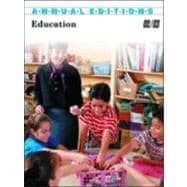| To the Reader | iv | ||||
| Topic Guide | xi | ||||
| Selected World Wide Web Sites | xiii | ||||
| UNIT 1 How Others See us and How We See Ourselves | |||||
|
|||||
| Unit Overview | xvi | ||||
|
2 | (4) | |||
|
|||||
|
|||||
|
6 | (5) | |||
|
|||||
|
|||||
|
11 | (6) | |||
|
|||||
|
|||||
|
17 | (19) | |||
|
|||||
|
|||||
|
|||||
| UNIT 2 Rethinking and Changing the Educative Effort | |||||
|
|||||
| Unit Overview | 36 | (18) | |||
|
38 | (6) | |||
|
|||||
|
|||||
|
44 | (6) | |||
|
|||||
|
|||||
|
50 | (2) | |||
|
|||||
|
|||||
|
52 | (2) | |||
|
|||||
|
|||||
| UNIT 3 Striving for Excellence: The Drive for Quality | |||||
|
|||||
| Unit Overview | 54 | (36) | |||
|
56 | (6) | |||
|
|||||
|
|||||
|
62 | (2) | |||
|
|||||
|
|||||
|
64 | (6) | |||
|
|||||
|
|||||
|
70 | (4) | |||
|
|||||
|
|||||
|
74 | (9) | |||
|
|||||
|
|||||
|
83 | (2) | |||
|
|||||
|
|||||
|
85 | (2) | |||
|
|||||
|
|||||
|
87 | (3) | |||
|
|||||
|
|||||
| UNIT 4 Morality and Values in Education | |||||
|
|||||
| Unit Overview | 90 | (22) | |||
|
92 | (3) | |||
|
|||||
|
|||||
|
|||||
|
|||||
|
95 | (9) | |||
|
|||||
|
|||||
|
104 | (4) | |||
|
|||||
|
|||||
|
108 | (4) | |||
|
|||||
|
|||||
| UNIT 5 Managing Life in Classrooms | |||||
|
|||||
| Unit Overview | 112 | (16) | |||
|
114 | (9) | |||
|
|||||
|
|||||
|
|||||
|
123 | (3) | |||
|
|||||
|
|||||
|
126 | (2) | |||
|
|||||
|
|||||
| UNIT 6 Cultural Diversity and Schooling | |||||
|
|||||
| Unit Overview | 128 | (30) | |||
|
130 | (6) | |||
|
|||||
|
|||||
|
136 | (4) | |||
|
|||||
|
|||||
|
|||||
|
140 | (6) | |||
|
|||||
|
|||||
|
|||||
|
|||||
|
146 | (6) | |||
|
|||||
|
|||||
|
152 | (6) | |||
|
|||||
|
|||||
| UNIT 7 Serving Special Needs and Concerns | |||||
|
|||||
| Unit Overview | 158 | (14) | |||
|
160 | (4) | |||
|
|||||
|
|||||
|
164 | (4) | |||
|
|||||
|
|||||
|
168 | (4) | |||
|
|||||
|
|||||
| UNIT 8 The Profession of Teaching Today | |||||
|
|||||
| Unit Overview | 172 | (30) | |||
|
174 | (8) | |||
|
|||||
|
|||||
|
182 | (4) | |||
|
|||||
|
|||||
|
186 | (9) | |||
|
|||||
|
|||||
|
|||||
|
|||||
|
195 | (4) | |||
|
|||||
|
|||||
|
199 | (3) | |||
|
|||||
|
|||||
| UNIT 9 A Look to the Future | |||||
|
|||||
| Unit Overview | 202 | (17) | |||
|
204 | (8) | |||
|
|||||
|
|||||
|
212 | (7) | |||
|
|||||
|
|||||
|
|||||
| Index | 219 | (3) | |||
| Test Your Knowledge Form | 222 | (1) | |||
| Article Rating Form | 223 |









